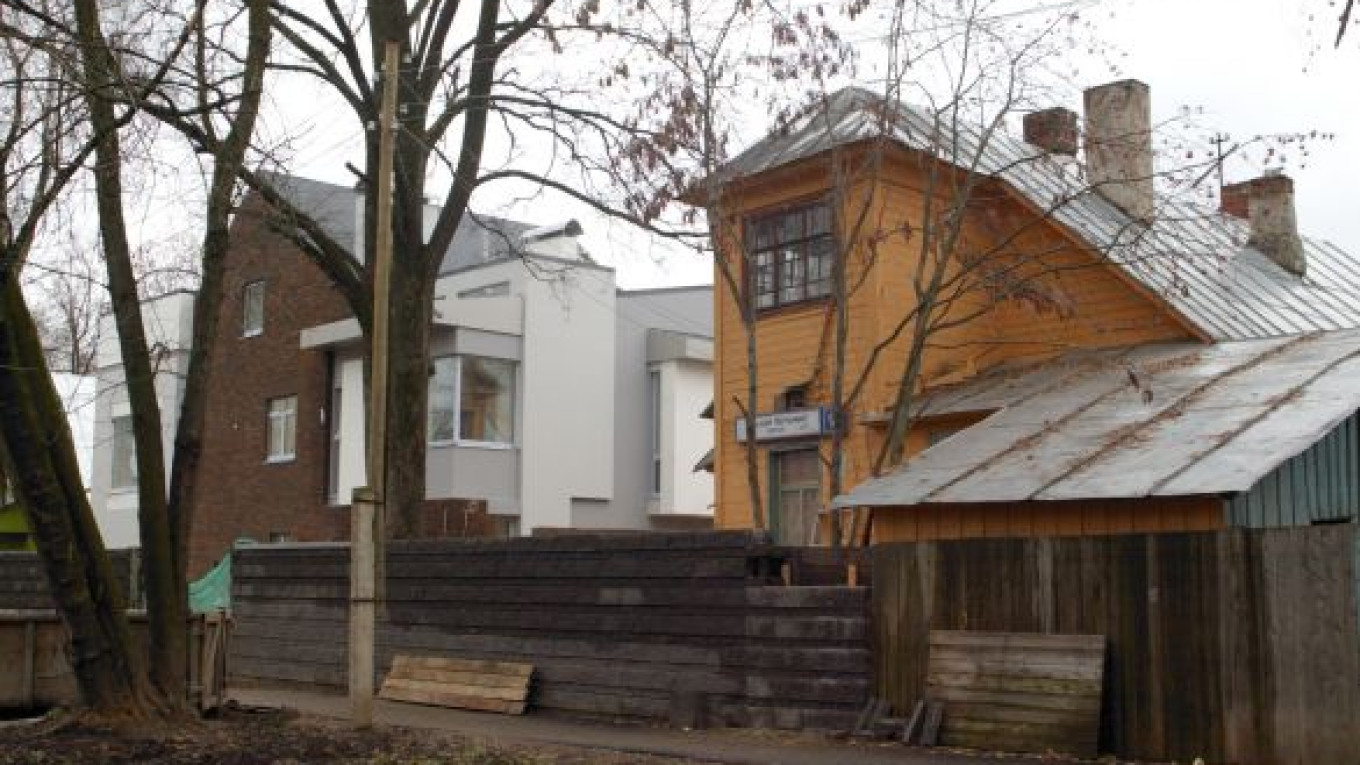After razing two dozen houses in Rechnik, Moscow authorities are considering flattening a similar number of homes in Sokol, a neighborhood of low-slung cottages in northern Moscow that once won a Soviet prize for best town planning.
Oleg Mitvol, prefect of Moscow's northern district, has asked city prosecutors to check the legality of 30 houses constructed in Sokol, his office said in a statement Wednesday.
Sokol — 113 cottages hidden in a park-like area behind towering apartment buildings ?€” was started in the early 1920s as the country's first cooperative settlement and was populated by artists and thinkers.
Most of the streets are named after celebrity artists praised by the Soviet regime, like Ulitsa Surikova or Ulitsa Vrubelya. In 1979, the village was declared an architectural monument to Soviet-era town planning.
But modern houses have been going up between the older ones over the past decade, drawing protests from Sokol residents and preservationists.
It remains unclear what prompted Moscow authorities to check for illegally constructed houses in the historic neighborhood only now, especially since there are other, more recent, illegal buildings, said Konstantin Mikhailov, a coordinator for Arkhnadzor, an independent preservationist organization.
"There many other new illegal constructions in Moscow, like a cafe on Rozhdestvensky Bulvar in the city center, but no one touches it," Mikhailov said.
According to web ads, a house in Sokol costs up to $10 million.
An official in Sokol's administration told RIA-Novosti that no residents had any reason to worry about their homes being demolished. "All the houses are protected by official documents," the unidentified official was quoted as saying.
Mayor Yury Luzhkov has drawn fierce criticism over the past two weeks after he ordered the razing of the Rechnik neighborhood in western Moscow, a collection of about 200 mansions and shacks owned by State Duma deputies and war veterans that he says were built illegally.
Court marshals woke up residents in the wee hours of a winter morning in late January to tear down the first homes. Three more houses were to be flattened Wednesday, Interfax reported.
Luzhkov moved to tear down the houses after a 2006 check by Mitvol, who was then the deputy head of the federal environmental watchdog, found them to be illegal.
Luzhkov announced last week that the luxury Fantasy Island residential complex, near Rechnik, was also built illegally and faced demolition. Fantasy Island counts Industry and Trade Minister Viktor Khristenko and Health and Social Development Minister Tatyana Golikova among its residents.
Luzhkov could be looking to free up valuable land for commercial projects, said Alexei Mukhin, an analyst at the Center for Political Information.
In any case, he said, Luzhkov needed to watch his step with Sokol because his enemies smelled blood amid the current storm over Rechnik.
"It looks like a suicidal action because Luzhkov has launched an anti-social policy, and his opponents are pointing that out," Mukhin said.
City Hall had no immediate comment about Sokol on Wednesday.
A Message from The Moscow Times:
Dear readers,
We are facing unprecedented challenges. Russia's Prosecutor General's Office has designated The Moscow Times as an "undesirable" organization, criminalizing our work and putting our staff at risk of prosecution. This follows our earlier unjust labeling as a "foreign agent."
These actions are direct attempts to silence independent journalism in Russia. The authorities claim our work "discredits the decisions of the Russian leadership." We see things differently: we strive to provide accurate, unbiased reporting on Russia.
We, the journalists of The Moscow Times, refuse to be silenced. But to continue our work, we need your help.
Your support, no matter how small, makes a world of difference. If you can, please support us monthly starting from just $2. It's quick to set up, and every contribution makes a significant impact.
By supporting The Moscow Times, you're defending open, independent journalism in the face of repression. Thank you for standing with us.
Remind me later.


